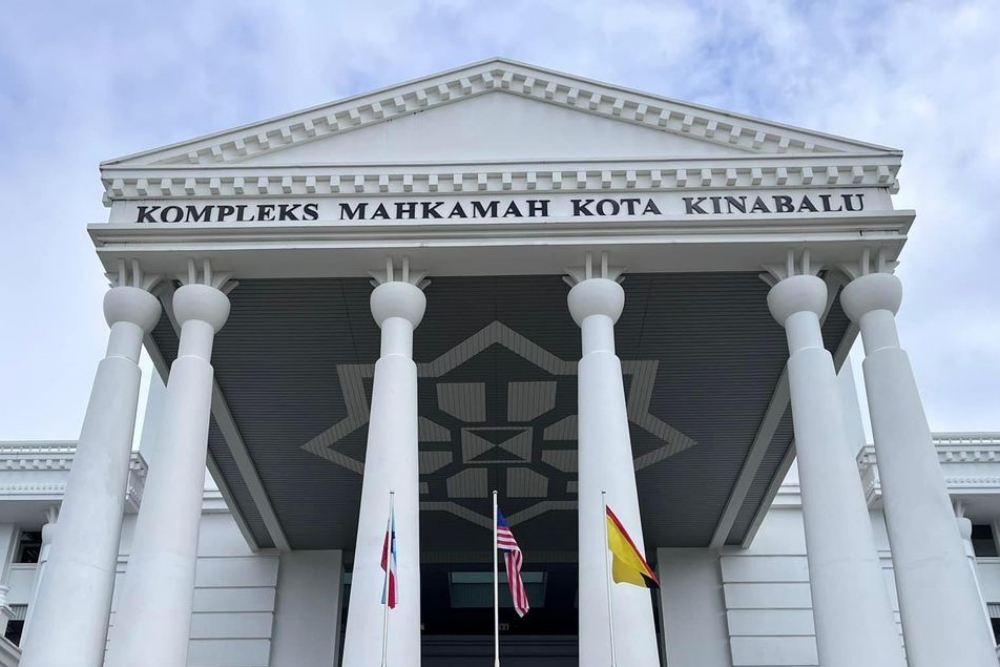ADVERTISE HERE

Fatimah (standing centre) witnesses the signing of the MoA.
KUCHING (Oct 21): A comprehensive study on the rapidly-growing ageing population in Sarawak is expected to conclude by end of June next year.
In announcing this, Minister of Women, Childhood and Community Wellbeing Development Dato Sri Fatimah Abdullah said the research, initiated by a consortium comprising Swinburne University of Technology Sarawak Campus, Curtin University Malaysia, and University of Technology Sarawak (UTS), would involve gerontology experts from Universiti Putra Malaysia (UPM) Bintulu Campus and other specialists in geriatrics.
“The ‘Research Preparation for an Ageing Sarawak: The Profile of and Ageing Issues of Older Persons in Sarawak’ will be conducted over a nine-month period starting from Oct 1, 2024. I am confident that this extensive study will help identify the pressing issues and challenges faced by the elderly population in Sarawak.
“The objectives of the research are multifaceted, aiming to examine the demographic profile of the older persons in Sarawak, identify their specific issues and challenges, understand their needs, and evaluate the effectiveness of existing intervention programs and services in meeting these needs.
“The findings are anticipated to provide a solid foundation for policy recommendations regarding the elderly population in Sarawak,” she said in her speech for the signing of a memorandum of agreement (MoA) on the research, held at Swinburne Sarawak Campus today.
Among the expected outputs of the research are a baseline analysis of ageing profiles meant for the study into socio-economic and wellbeing issues; assessment of the impact of ageing on manpower and income; proposal of a framework for an ‘older persons policy’ in Sarawak; strategies for policy implementation; development of programmes; and formulation of the necessary resources for addressing issues related to ageing.
Fatimah said in recognising the importance of this research, her ministry would want to use all the findings into shaping up effective social development policies and implementing the targeted interventions meant to enhance community wellbeing.
“Your contributions are vital for us in creating an inclusive future for all Sarawakians. There is a need for a society that values and uplifts its elderly citizens.
“According to United Nations data, an ageing population is defined when seven per cent of a country’s population is aged 65 and over, while a ‘super ageing’ population occurs when this percentage reaches 21 per cent.
“In Malaysia, individuals are recognised as senior citizens at age 60. The nation is expected to achieve the ‘ageing country status’ by 2030, when 15 per cent of the population will be 60 years or older.
“Sarawak is projected to reach this milestone by 2028, when 16 per cent of its population would comprise elderly individuals.”
Fatimah also said her ministry acknowledged that despite existing policies and action plans, the outcomes for the ageing population had not yet been fully realised.
“Hence there is a growing call for a specific law addressing the needs of older persons, similar to legislation in other Asean countries, to ensure that elderly citizens can lead dignified lives.
“This would encompass various provisions including financial support, accessible healthcare, and social services tailored to the needs of older individuals,” she said.
In this regard, Fatimah said to tackle the challenges faced by the elderly population, her ministry had established several initiatives such as Rumah Seri Kenangan, meant to accommodate the less-fortunate senior citizens, as well as Senior Citizens Activities Centre (PAWE) and Senior Citizens Service Centre (PPWE) that serve as dedicated facilities for programmes aimed at improving the wellbeing of seniors.
“The statistics, as of Sept 30, 2024, have recorded significant participation in these programmes, showcasing the ongoing commitment towards enhancing the quality of life for Sarawak’s elderly citizens.
“Ultimately, the core of this initiative is the recognition of human dignity for elderly citizens who have contributed to Sarawak’s growth.
“As they navigate the challenges of ageing and disability, it is imperative that society could ensure that they are supported, respected and empowered to live fulfilling lives. This not only aligns with social justice principles, but also reflects the fundamental values of our community,” she said.








 English (US) ·
English (US) ·